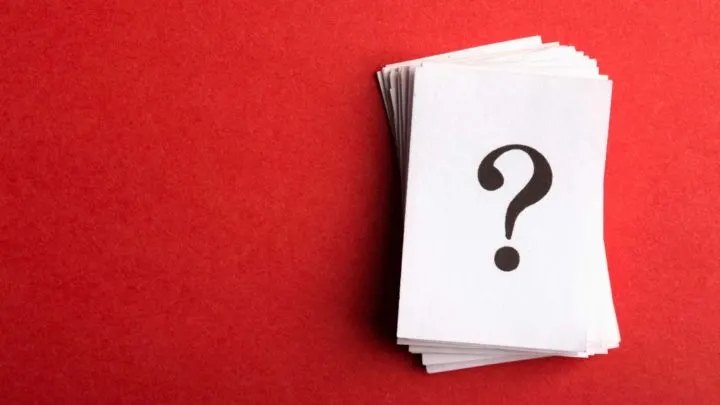When disaster strikes, gathering important documents will probably be the last thing on your mind. However, these papers are essential to rebuilding your life after the disaster. If you don’t know where they are – and if they are not stored properly – you may end up suffering far more than you need to.
I’ll admit: I’m not the best at this. I have five children and there were years that I didn’t know where everyone’s paperwork was. I was a disorganized mess! Fortunately, we did not experience a disaster during those years and I have since become more careful with our files.
Keeping your important documents safe from disaster should be a top priority. You never know where, when or how a disaster will strike, but you can be certain that there are some files (such as birth certificates and Social Security cards) that will be needed in the recovery process. If those files are lost or destroyed, it can be incredibly difficult to get new copies.
What important documents will you need in case of an emergency?
If a disaster strikes, you may be surprised at how much documentation you will need.
Vital records are the most important documents.
When you try to get a driver’s license, you usually need to show a Social Security card, photo ID and proof of residency. When you try to get a Social Security card, you will need to show original documents proving your citizenship and identity.
Can you imagine trying to replace these things without a single identifying document? It would be a nightmare!
Vital records help you prove your identity, which is why they are the most important documents you need to store.
Driver’s License or Photo ID
Your photo ID is most likely in your wallet. However, you can and should make a copy to keep in your important documents folder. Make sure you have identification for every member of the family, if possible!
Personally Identifying Information
The Federal Emergency Management Agency suggests including a recent photograph, fingerprints and dental records for each member of the household. Fingerprinting can be done for free at many police stations or nonprofits.
Birth Certificates or Adoption Papers
You will need a birth certificate or adoption papers for each member of your family.
If you cannot find the original birth certificates, you may need to order a replacement. Replacements can be ordered online and typically cost around $20-$30 each.
Social Security Cards
Social Security cards are also important documents that need to be protected.
However, the Social Security Administration has repeatedly warned people that they should not laminate their cards because it can damage important security features. Instead, you are advised to cover the card with plastic or other removable material that does not damage the card itself.
Marriage Licenses, Divorce Decrees and Child Custody Papers
In the event of an emergency, you may need to be able to prove your marriage, divorce or custody over your children. Maintaining this paperwork will ensure the safety of your family in an emergency.
Military Records
If you are active military or a veteran, you will need to store your vital military records. These can include a copy of your military ID, a copy of your military discharge or DD214 paperwork and other related documentation.
Pet Identification Information
If you have pets, you will also need to include identifying information for them. This can include a recent photo and description, as well as information about any microchips. Vaccination records for your pets may also be helpful.
Medical Information
If you are currently being treated by a physician or are taking prescription medications, you will need paperwork that proves this. A list of known allergies can also be helpful! Keep your doctor’s contact information and a current prescription list with your important documents.
You should also include your immunization history, powers-of-attorney for health care, important medical records and any living wills or advanced directives you may have.
Property Records
If you are renting, then you should keep a copy of your rental agreement or lease with your important documents. Add your renter’s policy information, if applicable.
If you own your own home, then it’s a bit more complicated. You will need a copy of your deeds and mortgage documents. Mortgage paperwork can be ridiculously complex, so just store the two-page settlement statement that shows the actual cost of the house and purchase expenses. Don’t forget your homeowner’s insurance information, also!
Whether you rent or own, you should also have photos or a list of household inventory in your personal records. Home inventory records are critical for successful insurance claims. We’ll show you how to make a household inventory list here.
You will also want to keep records about your automobile(s) and other vehicles, if applicable. A copy of the title and registration should be stored in your records.
Financial Records
Financial records can be complicated, but it’s much easier to gather this information before the disaster strikes.
You will also need a list of account numbers and contact information for your bank, credit unions and credit card companies. If you file taxes, you will also need the first two pages from your prior year’s tax returns.
You should also include a list of account numbers and contact information for utilities and other services.
If you own any stocks, bonds, investments, real estate or retirement accounts, you will want to keep that information stored there also.
Online Records
Let’s be honest: A lot of our modern living is managed online. It’s important to save and store records related to your online accounts, also.
The Federal Emergency Management Agency recommends storing a list of usernames and passwords for your online accounts.
Estate Planning Records
Do you have a will? You should! We can show you how to write a will for free – and it’s not as scary as you might think.
Obviously, you should store a copy of your wills, trusts, funeral instructions, powers of attorney, attorney names and phone numbers. If you don’t have all of this information yet, don’t worry too much… but if you have it, it’s important to store a copy of it with your important documents.

How should you store your important documents?
Many emergency preparedness sites will advise you to invest in a fireproof lock box or safe. However, these can cost $30-$50 and are often too expensive for families to purchase.
You can use something as simple as a three-ring binder to organize your files. I prefer expanding file folders, which cost less than $10 but are very easy to use. If you go this route, I also recommend grabbing some sheet protectors.
Of course, traditional binders and file folders will not protect your important documents from water or fire. However, Amazon also has some awesome fireproof and waterproof file folders that are reasonably priced (around $20).

